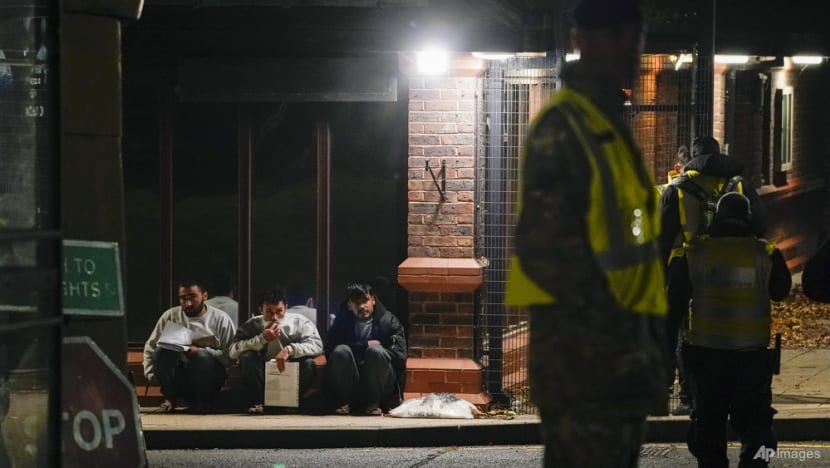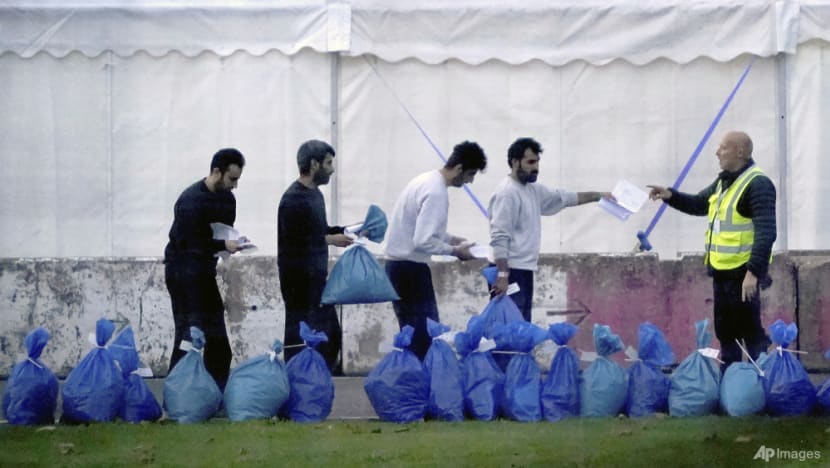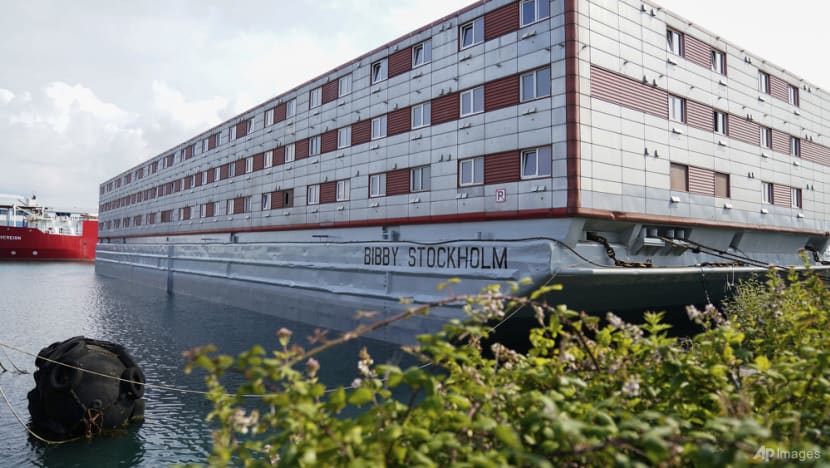UK government ramps up efforts to curb immigration numbers ahead of upcoming general election
With a general election to be held in the second half of this year, getting tough on migrants is seen as a priority for the incumbent British government.

LONDON: The British government is working towards reducing the number of foreigners moving to the United Kingdom, ahead of an expected general election later this year.
As it takes steps to tackle migration from multiple angles, its flagship pledge has been to stop the entry of small boats.
Tens of thousands of migrants cross the English Channel unofficially each year, an act that was criminalised in 2023.
British Prime Minister Rishi Sunak had said in January that he will likely call an election in the second half of this year.
The current parliament has to be dissolved by Dec 17 this year, with polls held by Jan 28 next year.
A WAITING GAME
Applying for asylum is a waiting game, and many refugees who arrive in the UK live in uncertainty for years.
For instance, one Ethiopian asylum seeker, known only as Abiwot, told CNA that although his asylum claim was recently approved, he is unable to find a job until he receives an identity card.
He currently lives off a government handout.
Abiwot had fled civil war in his home country back in 2021, making his way to France before travelling by a small boat to the UK.
“I get like £48 (US$61.53) to £49 weekly. I just prepare myself, I just cook myself and I serve out my life. That’s good, but it’s really boring, because you always sit, you are not allowed to work, you cannot go anywhere,” he told CNA.
“But it’s fine. I don’t blame this government, because so many asylums are coming, I know.”

While the migrants wait to be processed by the authorities, they are housed in various forms of temporary accommodation.
To save money, the Home Office has closed 50 hotels and is planning to close more in the coming months.
Some asylum seekers are being moved to large facilities like air bases and barges, which are cheaper than hotels.
The government said it is working with accommodation providers to limit the impact on those being relocated.
Migrants who had been living at a hotel in east London, for instance, were given just eight days’ notice to pack their bags. Some of them were not even told where they were moving to until the last moment.
HOUSING ASYLUM SEEKERS
Among the most controversial accommodation plans is the Bibby Stockholm barge, docked in the port of Portland in Dorset.

The 222-room barge has been described by critics as a floating prison.
Last December, an asylum seeker was believed to have taken his own life on board.
The former head of the UK’s border watchdog has warned that helplessness and boredom at such sites could lead to violence.
The government, in response, said it takes the physical and mental health of asylum seekers seriously and is moving quickly to process the claimants.
UK Home Secretary James Cleverly said in Parliament in January that the country’s total asylum backlog was at its lowest since December 2022.
“Last year, we cleared the equivalent of 92,000 legacy asylum claims and we processed a total of over 112,000 claims, the largest volume in two decades,” he said.
“Recruitment of processors continues and we will continue to review and improve our processes to accelerate decision-making from here on in.”
However, such efforts still see trickle-down consequences.
Mr Colm McDonald, a case worker at Rama Migration Charity in Colchester, told CNA: “Towards the end of the year, we were just dealing with an avalanche of homelessness in Colchester.
“Whereas at the beginning of last year, we were maybe seeing one or two of our clients being granted status or refused per week, by the end of last year we were dealing with four or five people a day in Colchester.”
There remains some 100,000 people in Britain’s asylum system, and the government is trying to deter others from adding to the numbers.
It is pushing ahead with a plan to deport some migrants to Rwanda, a move which has been hampered by legal and political challenges.
The policy has been branded by critics as cruel and incompatible with the UK's human rights laws, but in an election year, getting tough on migrants is seen as a priority for the incumbent government.














